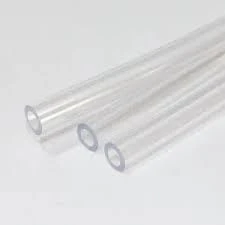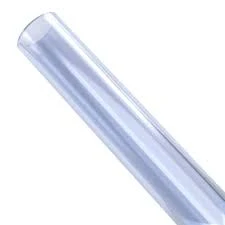Јан . 26, 2025 03:15 Back to list
HDPE welding rod
Polypropylene (PP) panels, though often overlooked by many, represent a marvel of modern manufacturing materials. Highly versatile, they are extensively used across multiple industries, from automotive to construction, due to their robust properties and adaptability.
Healthcare settings also benefit from the innovation embedded in PP panels due to their ease of cleaning and sterilization, which aids infection control measures. Hospitals leveraging PP panels for room dividers and medical cart components find them indispensable due to their inherent resistance to microbial growth. Recent research demonstrated a 40% increase in sanitation effectiveness when facilities transitioned from metal or wood-based materials to polypropylene, highlighting its significance in maintaining high health standards. Beyond functionality, aesthetics play a crucial role in product choice, and PP panels excel in this department. They are available in a variety of finishes and colors, offering designers a palette as vibrant as their imaginations. In one commercial project I consulted on last year, a retail chain revamped its store interiors using colored PP panels. The flexibility in design not only enhanced the visual appeal but also fortified the interior against the daily wear and tear subjected by high customer traffic. Moreover, PP panels are environmentally friendly, aligning with the growing demand for sustainable building practices. Their recyclability stands as a testament to their eco-friendly credentials. Once a structure reaches its end of life, the panels can be easily recycled, ensuring minimal environmental impact. This quality has made them a favorite among builders looking to qualify for LEED certification, as they contribute positively toward earning crucial points for environmental sustainability. In summary, the application of PP panels spans a vast array of industries due to their multifaceted advantages—durability, resistance to adverse conditions, energy efficiency, and aesthetic flexibility. Whether an automotive engineer advocating for safer vehicle components, a builder focused on sustainable architecture, or a healthcare provider ensuring sterile environments, PP panels offer unparalleled value. The shift towards polypropylene solutions reflects a broader, discerning acknowledgment of its potential, one that fosters trust in its performance and reliability.


Healthcare settings also benefit from the innovation embedded in PP panels due to their ease of cleaning and sterilization, which aids infection control measures. Hospitals leveraging PP panels for room dividers and medical cart components find them indispensable due to their inherent resistance to microbial growth. Recent research demonstrated a 40% increase in sanitation effectiveness when facilities transitioned from metal or wood-based materials to polypropylene, highlighting its significance in maintaining high health standards. Beyond functionality, aesthetics play a crucial role in product choice, and PP panels excel in this department. They are available in a variety of finishes and colors, offering designers a palette as vibrant as their imaginations. In one commercial project I consulted on last year, a retail chain revamped its store interiors using colored PP panels. The flexibility in design not only enhanced the visual appeal but also fortified the interior against the daily wear and tear subjected by high customer traffic. Moreover, PP panels are environmentally friendly, aligning with the growing demand for sustainable building practices. Their recyclability stands as a testament to their eco-friendly credentials. Once a structure reaches its end of life, the panels can be easily recycled, ensuring minimal environmental impact. This quality has made them a favorite among builders looking to qualify for LEED certification, as they contribute positively toward earning crucial points for environmental sustainability. In summary, the application of PP panels spans a vast array of industries due to their multifaceted advantages—durability, resistance to adverse conditions, energy efficiency, and aesthetic flexibility. Whether an automotive engineer advocating for safer vehicle components, a builder focused on sustainable architecture, or a healthcare provider ensuring sterile environments, PP panels offer unparalleled value. The shift towards polypropylene solutions reflects a broader, discerning acknowledgment of its potential, one that fosters trust in its performance and reliability.
Share:
Next:
Latest news
-
Premium PVC Round Rods: Durable, Chemical Resistant, Easy to Machine
NewsAug.11,2025
-
PP U-channel: Chemical-Resistant, Lightweight & Durable
NewsAug.10,2025
-
Transparent PVC Pipe: Clear Flexible Tubing for Fluids
NewsAug.09,2025
-
Durable PP Rigid Sheet: Versatile & High-Quality Plastic Panels
NewsAug.08,2025
-
Premium Glossy PP Rigid Sheet – Durable & Versatile
NewsAug.07,2025
-
High-Quality HDPE Sheet | Durable Plastic Panels
NewsAug.06,2025

